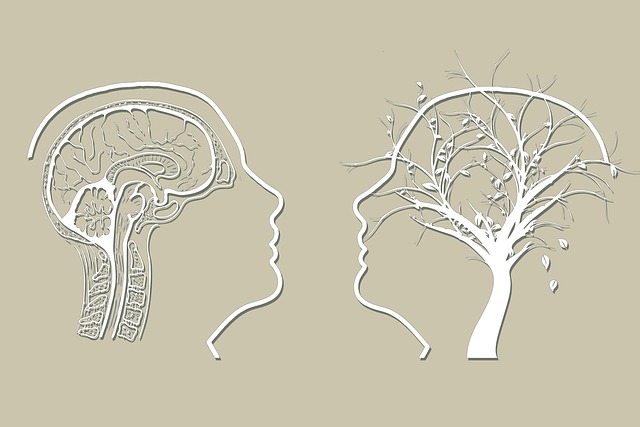Lakewood Somatic Experiencing Therapy (LET) offers a unique, integrated approach to coping skills development, emphasizing the mind-body connection. By helping individuals process trauma and release tension, LET fosters the creation of healthy coping mechanisms. Community outreach programs focused on stress management and trauma support, powered by LET techniques, empower folks to lead fulfilling lives despite challenges. Mindfulness practices, central to LET, enhance emotional regulation, concentration, and self-awareness, crucial for building resilience and navigating life's difficulties effectively.
In today’s fast-paced world, effective coping skills are essential for navigating stress and adversity. This article explores the development of these crucial tools, focusing on the power of Lakewood Somatic Experiencing Therapy (LET). We delve into the significance of coping mechanisms in our well-being and how LET offers a unique approach to managing stress. Learn practical strategies, from identifying personal coping styles to integrating mindfulness, empowering you to thrive amidst life’s challenges.
- Understanding Coping Skills and Their Significance
- The Role of Lakewood Somatic Experiencing Therapy (LET) in Developing Coping Mechanisms
- Identifying Personal Coping Strategies: A Step-by-Step Guide
- Integrating LET Techniques for Effective Stress Management
- Practicing Mindfulness: A Core Component of Coping Skills Development
Understanding Coping Skills and Their Significance

Coping skills are the strategies we use to navigate life’s challenges and maintain our emotional and physical well-being. They play a pivotal role in how individuals manage stress, process traumatic events, and ultimately, foster resilience. Understanding coping skills is essential, especially within the context of therapeutic practices like Lakewood Somatic Experiencing Therapy (SE). SE is a unique approach that integrates body and mind to address the profound impact of trauma, offering powerful tools for developing effective coping mechanisms.
This isn’t merely about siloing stress or avoiding difficult emotions; it’s about learning healthy, adaptive responses that allow individuals to process and integrate their experiences in safe and supportive ways. Community Outreach Program Implementation initiatives focused on promoting Stress Management and Trauma Support Services can empower individuals with coping skills, enabling them to lead fulfilling lives despite life’s inevitable challenges.
The Role of Lakewood Somatic Experiencing Therapy (LET) in Developing Coping Mechanisms

Lakewood Somatic Experiencing Therapy (LET) offers a unique and effective approach to coping skills development. By focusing on the mind-body connection, LET helps individuals process traumatic or stressful events and release associated tension and emotions. This therapy facilitates the creation of new, healthy coping mechanisms by encouraging clients to explore and understand their bodily sensations and reactions.
Through specialized techniques, LET promotes self-care routine development for better mental health. By mastering stress management skills, individuals become more equipped to handle challenging situations. Additionally, this form of therapy can enhance social skills training, allowing people to interact with others in a more regulated and confident manner.
Identifying Personal Coping Strategies: A Step-by-Step Guide

Identifying Personal Coping Strategies is a crucial step in Coping Skills Development. It’s akin to navigating a labyrinth – understanding your unique path, resources, and tools for overcoming challenges. This process begins with introspection, reflecting on past experiences and emotions. Consider when you’ve felt most stressed or overwhelmed; what coping mechanisms did you naturally turn to? Were they positive strategies like deep breathing, exercise, or creative outlets, or less helpful habits such as avoidance or substance use?
The Lakewood Somatic Experiencing Therapy approach can guide this exploration. Through guided practices and mental health education programs design tailored for stress management, individuals learn to recognize physical cues of stress and develop healthier coping skills. Workshops organization focused on these techniques empower folks to become more resilient in the face of life’s challenges. Remember, identifying your personal coping strategies is a journey; be patient with yourself, experiment, and adapt as you go.
Integrating LET Techniques for Effective Stress Management

The integration of LET (Lakewood Somatic Experiencing Therapy) techniques offers a powerful approach to managing stress and promoting emotional well-being. This therapeutic method focuses on connecting the mind and body, allowing individuals to release trapped emotions and physical tension associated with stress. By engaging in LET practices, one can effectively regulate their response to stressful situations, leading to improved resilience and overall mental health.
Incorporating these techniques into daily routines empowers individuals to take charge of their stress levels. Healthcare providers skilled in LET can facilitate this process through tailored guidance and support. Moreover, community outreach programs that include training in emotional regulation strategies, such as those taught in Cultural Competency Training sessions, can empower individuals from diverse backgrounds to navigate stress in a healthy manner. Effective communication strategies, essential for building trust between patients and healthcare providers, further enhance the benefits of LET by fostering an environment where participants feel safe to explore and express their emotions.
Practicing Mindfulness: A Core Component of Coping Skills Development

Practicing mindfulness is a fundamental aspect of developing effective coping skills, as highlighted by Lakewood Somatic Experiencing Therapy. It involves training one’s attention and awareness to the present moment, accepting thoughts and feelings without judgment. This ancient practice has gained prominence in modern mental health support services due to its ability to reduce stress and anxiety. By cultivating mindfulness, individuals can better regulate their emotions, enhance focus, and develop a deeper sense of self-awareness—all crucial elements for building resilience.
In the context of trauma support, mindfulness techniques play a pivotal role in helping individuals process and heal from past traumatic experiences. Mental Health Policy Analysis and Advocacy emphasizes the importance of integrating these practices into comprehensive therapy models. Through regular practice, whether through meditation, mindful breathing exercises, or body scans, individuals can foster a sense of calm and equanimity, enabling them to navigate challenging situations with greater ease. This not only improves overall mental health but also strengthens one’s ability to cope with life’s stressors, fostering resilience in the face of adversity.
Coping skills development is a vital process for navigating life’s challenges. By understanding and adopting effective strategies, individuals can enhance their resilience and overall well-being. The article has explored various techniques, highlighting the power of Lakewood Somatic Experiencing Therapy (LET) in promoting healthy coping mechanisms. Through practical steps and mindfulness practices, readers can now equip themselves with tools to manage stress and overcome adversity. Integrating these learned skills into daily life will foster personal growth and a deeper sense of calm amidst life’s storms.














